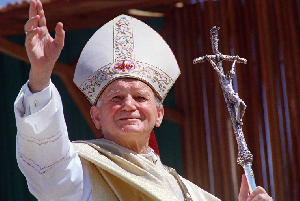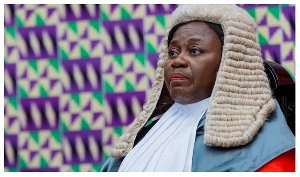“Forgiveness is above all a personal choice, a decision of the heart to go against natural instinct to pay back evil with evil.”- Pope John Paul II
Forgiveness is transformative; it’s light driving out darkness from our lives.
1. Why Do We Have to Forgive?
Forgiveness is essential for:
. Healing and emotional release:
Forgiveness allows us to release the emotional burden of past hurts.
. Personal growth and development:
Forgiveness helps us learn from our experiences and move forward.
. Restoring relationships:
Forgiveness can repair and strengthen relationships.
. Improving mental and physical health:
Forgiveness has been linked to lower blood pressure, reduced stress, and improved mental health.
2. Why Are Some People Unwilling to Forgive Others?
Some people may struggle to forgive due to:
. Fear of vulnerability:
Forgiveness requires vulnerability and openness
. Sense of Justice:
Some individuals may feel that forgiveness undermines justice or accountability.
. Emotional attachment:
People may be attached to their negative emotions, such as anger or resentment.
. Lack of understanding:
Forgiveness can be misunderstood as condoning or excusing hurtful behavior
3.Obstacles to Forgiveness
Common obstacles to forgiveness include:
.Unresolved emotions:
Unaddressed emotions can make forgiveness challenging.
. Lack of empathy:
Difficulty understanding the perspectives of others can hinder forgiveness
. Trauma and pain:
Severe trauma or pain can make forgiveness more complicated.
. Cultural or societal expectations:
Cultural or societal norms may emphasize revenge or retribution over forgiveness
4. Practicing Forgiveness
a. Acknowledge and accept your emotions: Recognize your feelings and give yourself permission to process them.
b. Let go of the need for revenge: Release the desire for retribution or punishment
c. Practice empathy and understanding: Try to see things from the other person’s perspective.
d. Choose to forgive: Make a conscious decision to forgive, even if it’s difficult.
. Seek support: Talk to a therapist, trusted friend, or family member about your forgiveness journey.
5. Benefits of Forgiving Others
a. Emotional release and healing: Forgiveness can bring emotional relief and healing.
b. Improved mental health: Forgiveness has been linked to lower levels of depression, anxiety and stress.
b. Stronger relationships: Forgiveness can repair and strengthen relationships.
c. Increased self-esteem: Forgiveness can promote self-esteem and confidence.
d. Spiritual growth: Forgiveness can lead to spiritual growth and a deeper sense of purpose
6.Inspirational Story
The story of Nelson Mandela is a perfect example of the power of forgiveness. Upon release from his long incarceration and becoming President of South Africa, Mandela made a decision to forgive the racist/apartheid regime and prison guards who tortured.
7.Conclusion
Forgiveness is not a one-time event, but rather a journey that requires patience, effort, and dedication. Forgiveness doesn’t mean forgetting or condoning hurtful behavior, but rather releasing the negative emotions associated with it.
8.Call-to-Action
Make a decision today to embrace forgiveness as part of the transformative journey of your life.
Bonus Quotes
1. “Forgiveness is the light that drives out the darkness in your life.”- Abundant Robert K. AWOLUGUTU
2. “Forgiveness is the healing balm for past hurts.”- Abundant Robert K. AWOLUGUTU
3. “Forgiveness is the fragrance that the violet sheds on the heel that has crushed it.”- Mark TWAIN
4. “To forgive is the highest, most beautiful form of love.”- Robert MULLER
5. “To forgive is to set a prisoner free and discover that the prisoner was you.”- Lewis B. SMEDES
Opinions of Thursday, 28 November 2024
Columnist: Abundant Robert K. Awolugutu















